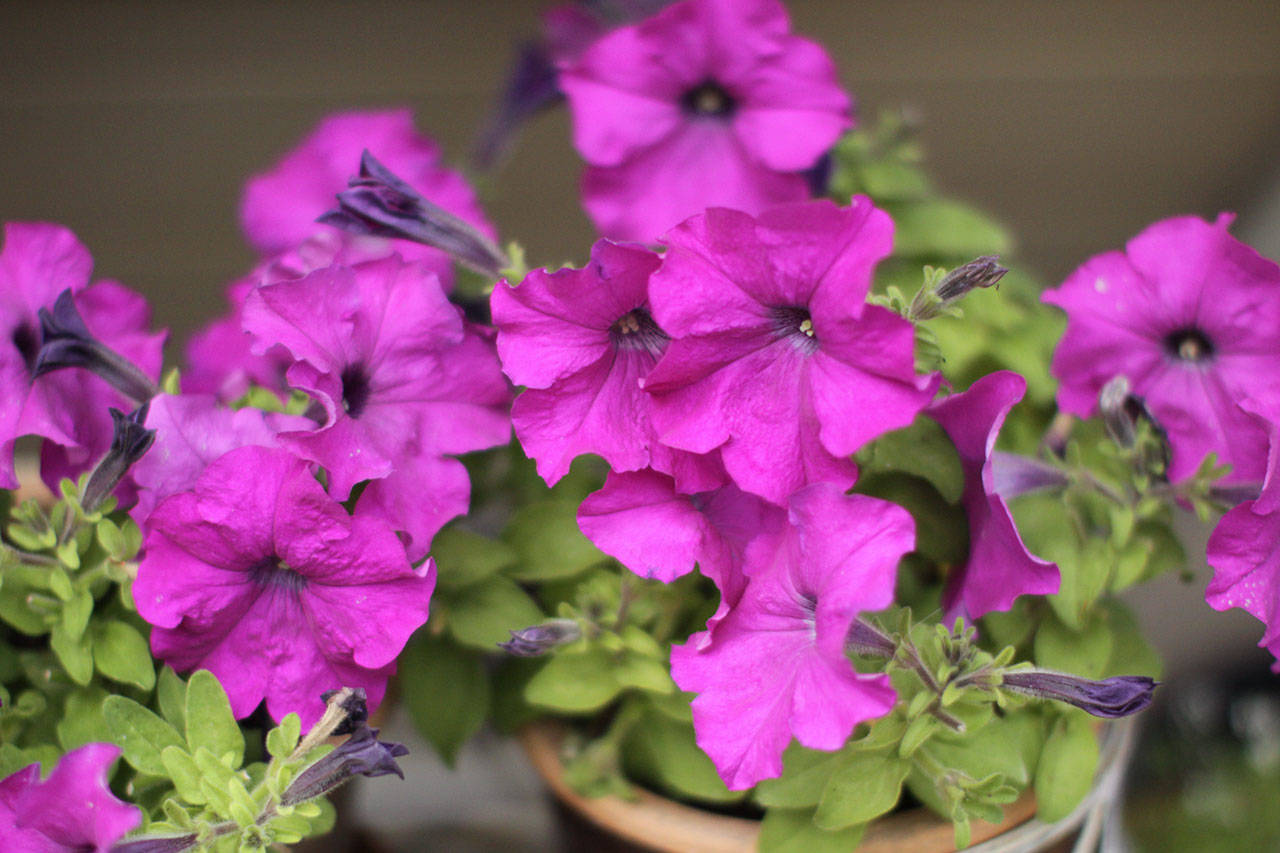August is usually the hottest month on the Olympic Peninsula; hopefully this year it will, at least, be warm. It’s most certainly going to be dry, so be sure to monitor your garden and keep your plants well-watered.
If you have a watering system, it’s important to do a visual inspection several times a week to confirm it’s working as required.
This is also the time of year to turn and moisten the compost pile. Keep building your compost by layering green and brown organic materials. The air from turning and moistening the material will really get it cooking.
Flowers
Bringing cut flowers indoors to enjoy is a great way to beat the seemingly endless need to deadhead. Deadheading, however it’s accomplished, will keep flowers blooming through the fall.
While deadheading roses, prune lightly for a pleasing shape; remove crossing branches and work to open up the center of the plant for good air circulation. Black spot on roses can be a real challenge.
Remove leaves with black spot and regularly clean up any debris around the plant. Do not compost any diseased plant material. Prune hydrangeas as soon as the flowers begin to fade.
Shear lavender to reshape it after blooming.
Bulbs (corms, rhizomes, etc.)
August is a good time to think spring in the bulb garden. Get ready for fall planting by looking at catalogs to select your spring bulbs. Dig and divide iris, and remember to plant them so that the top of the rhizome is visible.
Trees, shrubs
Avoid extensive pruning of trees and shrubs since it encourages new growth late in the season; remove dead material and shape lightly if needed. Remember, even drought tolerant plants enjoy occasional watering. All new plants, including drought tolerant trees and shrubs, need to be watered for at least the first year after being planted.
Fruit trees and small fruits: Plums may be ripe and ready to harvest this month. It is most likely too early to harvest pears and apples.
When the time comes, apples are ripe when the seeds turn brown. Pears need to be harvested when they reach mature size and while they are still hard, probably next month. Blueberries are ripe two to three days after the entire berry (including the end next to the stem) turns blue.
Veggies
Harvest, harvest, harvest: It’s also important to keep the vegetable garden clean and pest/disease free. If squash and cucumber plants show powdery mildew, cut off affected areas. Watch for blight on tomatoes and prune off any diseased or damaged growth. Remove the entire plant if necessary.
If you haven’t harvested your garlic, stop watering and lift it when four or five leaves are still green. Brush off the dirt and let them dry for a few days.
Then store them in a dry, dark place to cure for up to six weeks. There is still plenty of opportunity to plant kale, spinach, cabbage, lettuce, and more, for a winter garden.
Transplant broccoli, cauliflower, leeks, Brussels sprouts and Chinese cabbage starts, covering them with row cover to prevent insect infestations.
Look for starts in your local garden center if you didn’t start your own in July.
Susan Kalmar is a Clallam County Master Gardener.



